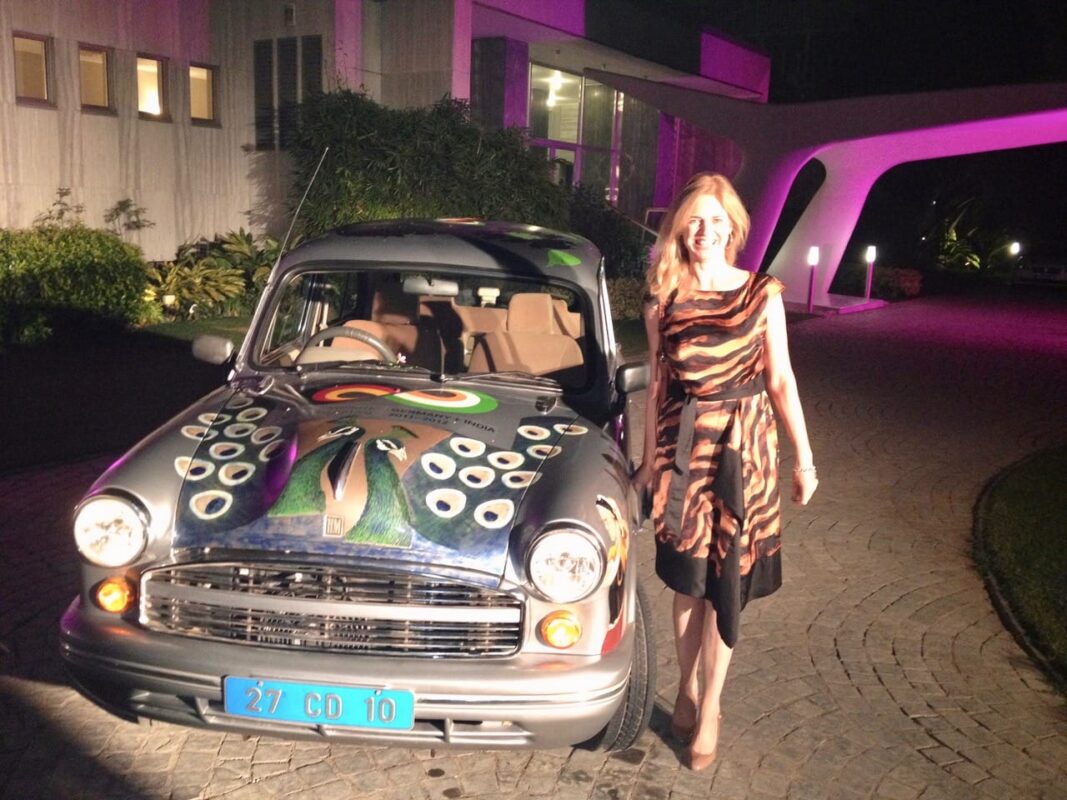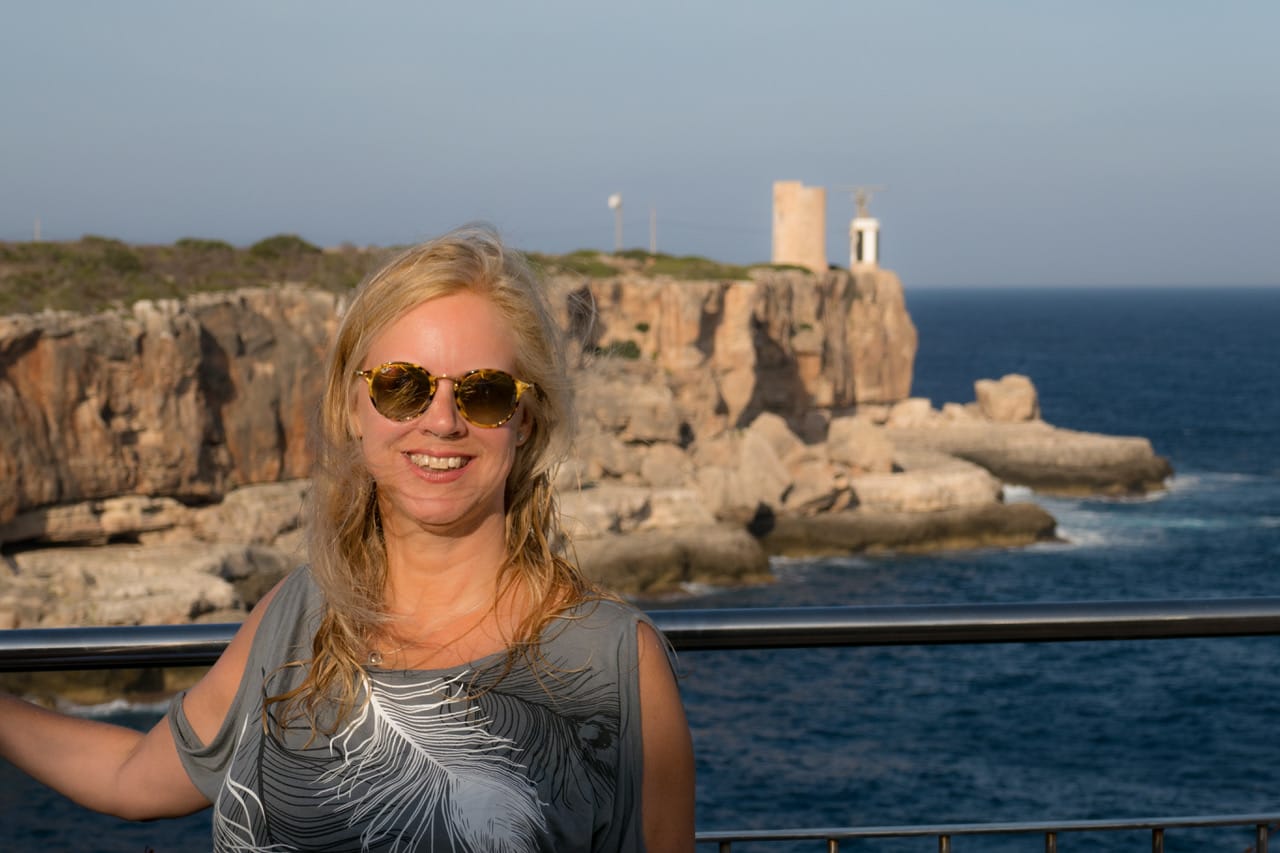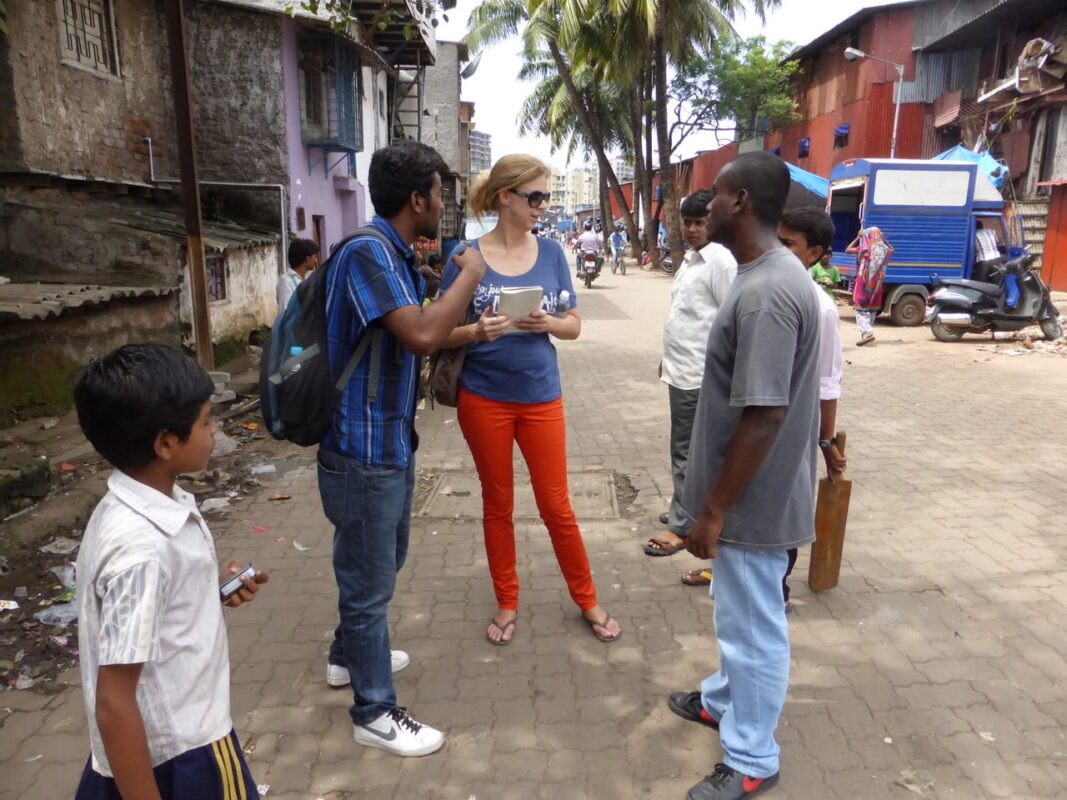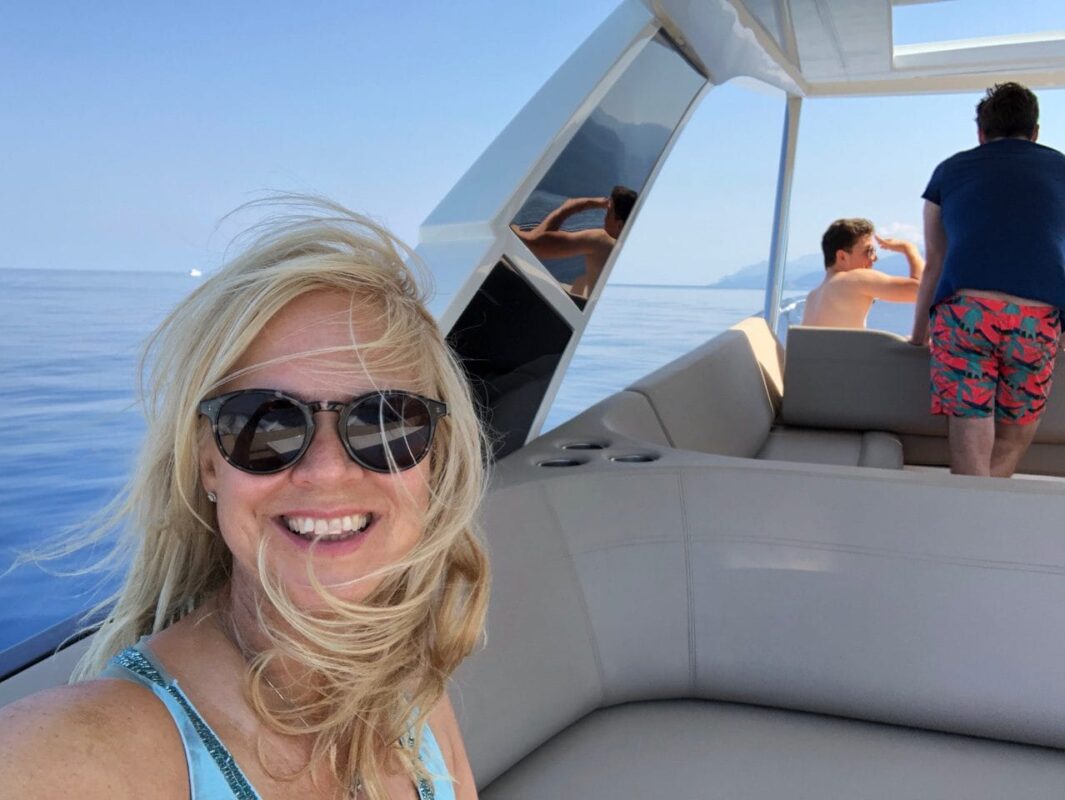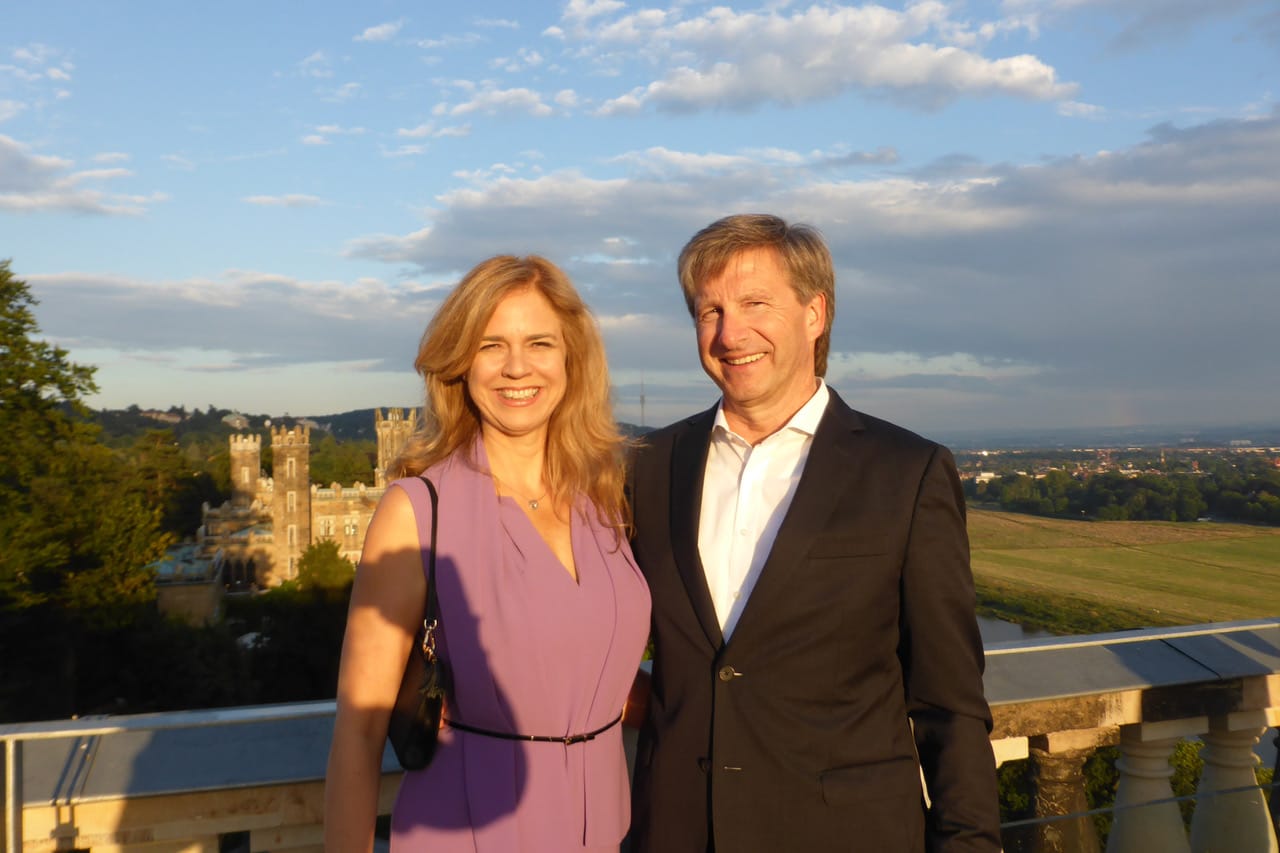Welum Women Who Inspire - We do success right…CORNELIA KUNZE
Meet Cornelia Kunze, a global communications consultant, co-owner and Managing Director of the boutique consultancy i-sekai in Munich, and chairwoman of GLOBAL WOMEN IN PR Chapter Germany. Cornelia is a daughter, sister, life partner, stepmother, friend, colleague, traveler, India and Asia enthusiast, music lover, explorer, liberal roman catholic, and world citizen with German roots.
Tell us more about your family, do you have siblings? How was Cornelia as a kid?
My father is a veterinary, my mother is committed to helping the poor, my sister is an HR manager. I grew up in a small town in the center of Germany, attending a girls-only school run by nuns, playing piano and theatre, loving languages.
Talking about the professional field, for the people who don't know, can you tell us, what is public relations? And what is its importance?
Organizations use public relations to shift perceptions, attitudes, and behaviors with the objective of earning trust and support for their business. Many call this also “strategic communications”. Organizations need their voice out there as much as they need to listen to all important stakeholders and understand their needs.
You studied Sciences Economics. How did you jump from business economics to public relations?
It was pure coincidence. My majors were marketing and controlling/finance. I wanted to become a global brand manager – and was asked to run corporate affairs for the subsidiary of Mars (the chocolate company). I loved it and stayed in that profession. My business background and in-house expertise were very useful when starting my job at Edelman.
You worked 19 years in Edelman, a global communications marketing firm considered one of the most important PR agencies in the world. During that time you had different job positions even you got a global position: Vice Chair, Global Client Management, What did it mean in your professional life to became Vice Chair, Global Client Management and what was the most rewarding aspect of your position ?
Edelman is the global leader in public relations and grew substantially during the time I was there. Hence, I had infinite possibilities to learn and take on new challenges. From a director in the Hamburg office to the CEO of the German operations plus additional tasks in overseeing our business in markets like Poland, Sweden, and Turkey.
I wanted to see more – and asked to be relocated to India, working in Asia. I was made responsible for overseeing the brand practice in the whole region, build a community, counsel senior clients, win new business and set up the same quality standards for our consulting in the region. As a Vice Chair Global client management, I was responsible for our performance and business with 40 clients, based in different locations around the globe. I was collaborating with the 40 key account managers of those clients.
The international collaboration with wonderful colleagues around the world, the challenging and interesting tasks our multinational clients gave to us and the experience, that a very diverse team of people can move mountains. All of that was very rewarding. In particular, I am proud of our work for Dove and the Campaign for Real Beauty, which we embarked on in 2004 when I was leading our global team.
You left Edelman and founded your own PR agency in Germany. Why did you decide to start your own firm? How has it been your experience now being an entrepreneur in public relations?
I left Edelman to do something different in the next 10 years in my career – and founded a boutique consultancy – not so much an agency. Together with my business partner, who as well worked at Edelman Asia Pac before, we counsel global companies to use international communications more effectively.
We work with a community of independent communication advisors – like us – something which some people also call “liquid” consultancy. A system, where talent is not contracted but independent, where experts come together when needed and not because they are on a payroll. We believe in the future of new work, flexible and agile units connected by values and professionalism, not by contract. Our clients want to work with senior people and not necessarily contract an agency by the retainer.
Do you have any particular philosophy that guides your career decisions?
Respect the people you work with – each of us is different. Work for and with people, who respect you too, for who you are and what you contribute.
What are the biggest challenges you have faced in your career?
Change management is never easy because it also affects people, who do not want to change. Navigating the conflict between what's needed for the business and what's desired by the people around you, it can be challenging. I always tried to identify common ground. I had situations, where values differed – so I needed to stop working relationships too.
If you could, would you change any steps you took in your career, and if so, what would you change?
Not really. I am grateful for every single experience. I loved my experience in Asia and sometimes thought, I should have just left a bit earlier.
What do you love most about your job and what is the most difficult part?
I love change and continuous learning. The opportunity to dive into so many different industry challenges, meet different people and the sometimes complicated journey to find strategic and creative solutions for a communications problem. I love to turn complex situations into simple solutions. A little bit like an engineer for communications.
"I guess I have always embraced the new opportunity and not let worries get in the way and I believe, I put people first "
Cornelia, you have accomplished a lot during your PR career, what is the recipe for your success?
I guess I have always embraced the new opportunity and not let worries get in the way. And I believe, I put people first.
How do you balance your personal (partner, kids, parents etc. and professional life?
It's a matter of priorities and re-assessing these priorities every day. Knowing where to say “stop” and re-calibrating when necessary. I have worked long times too – but in general, I am able to call it a day, when other responsibilities call me. This includes the responsibility I have towards myself to stay healthy, motivated and inspired.
What do you like to do in spare time?
Travel, read, see friends & family
Who is the woman you admire the most and why?
So many women J. But right now I`d like to mention Angela Merkel. A woman who has stepped up to one of the most powerful leaders in the world, with an outstanding track record of successes. A woman who lacks vanity shows incredible responsibility, empowers other women and sticks to a very clear value system.
There is still the glass roof for women in the world especially in Latin America, fewer opportunities, jobs underpaid just for that fact of being a woman etc. Have you experimented the glass ceiling? if yes how you have gotten over, if not, why do you think is that?
" I have seen and experienced “mini-inequalities” like any other woman. I have been interrupted during speeches, mistaken as the secretary, asked to serve coffee, to look lovely and smile, wear a nice dress, accept lower pay, I partly tried to adopt the male system, partly stuck to my own cultural preferences. It was try and failure– and mostly succeed"
I have seen and experienced “mini-inequalities” like any other woman. I have been interrupted during speeches, mistaken as the secretary, asked to serve coffee, to look lovely and smile, wear a nice dress, accept lower pay because my husband was well paid. All of this is quite normal for a woman who has grown up and worked in Germany, a hierarchical culture, with low presence of women in leadership positions. I have partly ignored this, partly worked harder, partly had better qualifications than others in certain situations, partly tried to adopt the male system, partly stuck to my own cultural preferences. It was try and failure– and mostly succeed.
You are the chairwoman of GLOBAL WOMEN IN PR chapter Germany, what´s your main goal in the Association?
We want to support women to take on more leadership positions in our profession. Currently, around 70% of job starters in our profession are women, but only 30% of leaders. There`s room for improvement. By better networking and support for women between each other, we will make progress.
I think in your position, many people may have the wrong idea of who you really are (personally), and what do you (professionally), with this idea in mind, what is being Cornelia and what's not?
I don't know whether people have the wrong idea of who I am. I enjoy the relationships I have, they matter to me and I try not to pretend I am somebody else. If some people see me differently, it doesn’t matter so much.
" In my profession we know, that self-image and external perception often differs. My work is about shifting perceptions, attitudes, and behaviors to support the business objectives of my clients "
In my profession we know, that self-image and external perception often differs. My work is about shifting perceptions, attitudes, and behaviors to support the business objectives of my clients.
What are your plans for this 2019?
2019 is the year to build up and grow our consultancy i-sekai and its network of independent advisors.
What tips can you give to young girls who want to work in PR?
- Be courageous
- Believe in yourself
- Take on challenging opportunities,
- Understand what it takes to deliver well and make sure you are paid well for your contribution.
Name: Cornelia Kunze
Sector: Public Relations
Company: i-sekai
Designation: Co-Owner and Managing Director
Country: Germany
Social media: https://twitter.com/CorneliaKunze
https://www.linkedin.com/in/cornelia-kunze-845ab64/
Tags
Communication / Cornelia Kunze / entrepreneur / global / i-sekai / in Global Communication in PR / PR / women who inspire
Communication / Cornelia Kunze / entrepreneur / global / i-sekai / in Global Communication in PR / PR / women who inspire

